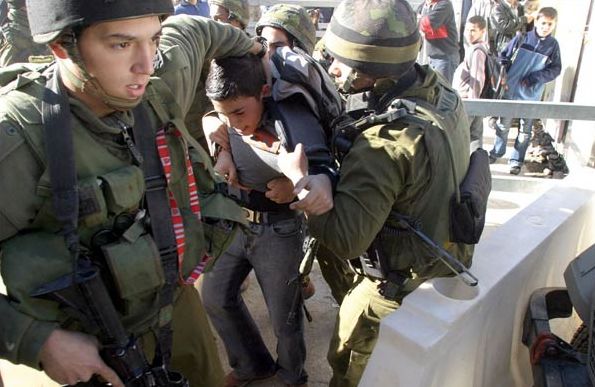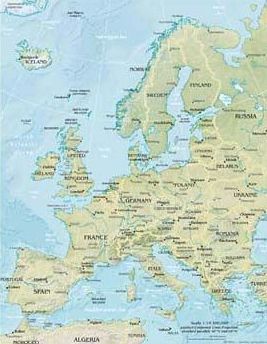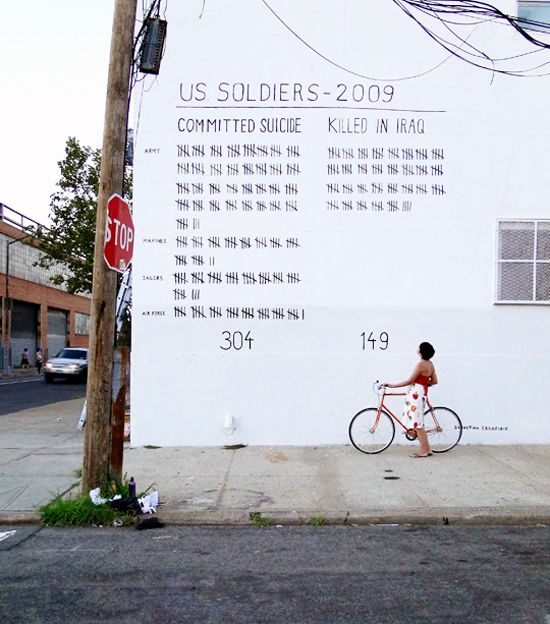By Ambassador Chas W. Freeman, Jr. (USFS, Ret.), Tufts University, October 15, 2010
 As an American, I look at the results of U.S. policies in the Middle East and they remind me of the T-shirt someone once gave me. It said: “Sinatra is dead. Elvis is dead. And me, I don’t feel so good.”
As an American, I look at the results of U.S. policies in the Middle East and they remind me of the T-shirt someone once gave me. It said: “Sinatra is dead. Elvis is dead. And me, I don’t feel so good.”
The Middle East is a constant reminder that a clear conscience is usually a sign of either a faulty memory or a severe case of arrogant amorality. It is not a badge of innocence. These days, we meticulously tally our own battlefield dead; we do not count the numbers of foreigners who perish at our hands or those of our allies. Yet each death is a tragedy that extinguishes one soul and wounds others. This deserves our grief. If we cannot feel it, we may justly be charged with inhumanity.
All that is required to be hated is to do hateful things. Apparent indifference to the pain and humiliation one has inflicted further outrages its victims, their families, and their friends. As the Golden Rule, common – in one form or another – to all religions, implicitly warns, moral blindness is contagious. That is why warring parties engaged in tit for tat come in time to resemble each other rather than to sharpen their differences.
War is in fact not the spectator sport that the fans who watch it on television or on big screens in theaters imagine. Nor is it the “cakewalk” that its armchair advocates sometimes suggest it might be. War is traumatic for all its participants. Recent experience suggests that 30 percent of troops develop serious mental health problems that dog them after they leave the battlefield. But what of the peoples soldiers seek to punish or pacify? To understand the hatreds war unleashes and its lasting psychological and political consequences, one has only to translate foreign casualty figures into terms we Americans can relate to. You can do this by imagining that the same percentages of Americans might die or suffer injury as foreigners have. Then think about the impact that level of physical and moral insult would have on us.
Consider, for example, the two sides of the Israel-Palestine struggle. So far in this century – since September 29, 2000, when Ariel Sharon marched into the Al Aqsa mosque and ignited the Intifada of that name, about 850 Israeli Jews have died at the hands of Palestinians, 125 or so of them children. That’s equivalent to 45,000 dead Americans, including about 6,800 children. It’s a level of mayhem we Americans cannot begin to understand. But, over the same period, Israeli soldiers and settlers have killed 6,600 or so Palestinians, at least 1,315 of whom were children. In American terms, that’s equivalent to 460,000 U.S. dead, including 95,000 children.
Meanwhile, the American equivalent of almost 500,000 Israelis and 2.9 million Palestinians have been injured. To put it mildly, the human experiences these figures enumerate are not conducive to peace or goodwill among men and women in the Holy Land or anywhere with emotional ties to them.
We all know that events in the Holy Land have an impact far beyond it. American sympathy for Israel and kinship with Jewish settlers assure that Jewish deaths there arouse anti-Arab and anti-Muslim passions here, even as the toll on Palestinians is seldom, if ever, mentioned. But, among the world’s 340 million Arabs and 1.6 billion Muslims, all eyes are on the resistance of Palestinians to continuing ethnic cleansing and the American subsidies and political support for Israel that facilitates their suffering. The chief planner of 9/11, Khalid Sheikh Mohammed, testified under oath that a primary purpose of that criminal assault on the United States was to focus “the American people . . . on the atrocities that America is committing by supporting Israel against the Palestinian people . . . .” The occupation and attempted pacification of other Muslim lands like Iraq and Afghanistan as well as the shocking hate speech about Islam that now pervades American politics lend credence to widening Muslim belief in a U.S. crusade against Islam and its believers.
No one knows how many Iraqis have died as a direct or indirect consequence of the U.S. invasion and the anarchy that followed it. Estimates range between a low of something over 100,000 to a high of well over 1 million. Translated to comparable proportions in the United States, that equates to somewhere between 1 and 13 million dead Americans. Over two-and-a-quarter million Iraqis fled to neighboring countries to escape this bloodbath. An equal number found shelter inside Iraq. Few Iraqis have been able to go back to Iraq or to return to their homes. In our terms, that equals an apparently permanent flight to Canada and Mexico of 24 million Americans, with another 24 million driven into homelessness but, years later, still somewhere inside the country. I think you will agree that, had this kind of thing happened to Americans, religious scruples would not deter many of us from seeking revenge and reprisal against whoever had done it to us.
The numbers in Afghanistan aren’t quite as frightful but they make the same point. We’re accumulating a critical mass of enemies with personal as well as religious and nationalistic reasons to seek retribution against us. As our violence against foreign civilians has escalated, our enemies have multiplied. The logic of this progression is best understood anecdotally.
I am grateful to Bruce Fein (a noted constitutional scholar in Washington, DC) for calling attention to the colloquy of convicted Times Square car bomber Faisal Shahzad with United States District Judge Miriam Cederbaum. She challenged Shahzad’s self-description as a ‘Muslim soldier’ because his contemplated violence targeted civilians,
“Did you look around to see who they were?”
“Well, the people select the government,” Shahzad retorted. “We consider them all the same. The drones, when they hit …”
Cedarbaum interrupted: “Including the children?”
Shahzad countered: “Well, the drone hits in Afghanistan and Iraq, they don’t see children, they don’t see anybody. They kill women, children, they kill everybody. It’s a war, and in war, they kill people. They’re killing all Muslims.”
Later, he added: “I am part of the answer to the U.S. terrorizing the Muslim nations and the Muslim people. And, on behalf of that, I’m avenging the attack. Living in the United States, Americans only care about their own people, but they don’t care about the people elsewhere in the world when they die.”
No amount of public diplomacy, no matter how cleverly conducted, can prevail over the bitterness of personal and collective experience. The only way to reverse trends supporting anti-American violence by the aggrieved is to reverse the policies that feed it. That means finding alternatives to military intervention as the principal instrument of U.S. foreign policy, and it means returning to the American tradition of respect for the sovereignty and ways of life of other nations.
That perspective was best stated by John Quincy Adams in his speech to the U.S. House of Representatives of July 4, 1821. Adams said, with pride, that: “America . . . has abstained from interference in the concerns of others, [even] when the conflict has been for principles to which she clings, as to the last vital drop that visits the heart . . . She is the well-wisher to the freedom and independence of all. She is the champion and vindicator only of her own. . . . She might become the dictatress of the world: she would be no longer the ruler of her own spirit.” In my view, Adams was right in both his prescription and his prognosis.
We are now a nation with unmatched military capabilities. Perhaps that is why we are the only country in the world to have proclaimed that our conflict with terrorists is a “war,” or to have dismissed civilian victims of our violence as “collateral damage.” Other nations have joined us in Afghanistan to demonstrate their solidarity with us, not because they see the piecemeal pacification of the Muslim world as the answer to the extremist non-state actors in its midst. It is not simply that terrorism is a tactic, not a cause against which one can wage war. Weapons are indeed tools with which to change men’s minds, but to do this they must be employed with care, otherwise they can entrench animosity and justify reprisal against the nation that wields them. No other people has so powerful a military establishment that it could even begin to persuade itself, as many Americans have, that guns can cure grudges or missiles erase militancy.
If you view the world through a bombsight, everything looks like a target. Yet the lesson of 9/11 is that if you drop bombs on enough people – even on people with no air force – the most offended amongst them will do their best to bomb you back. Security challenges far from our shores now challenge domestic tranquility. The lesson of Iraq and Afghanistan is that there are some problems for which invasion and occupation are not appropriate or effective responses. Far from demonstrating the irresistible might of the United States, as their neo-conservative champions intended, these wars have revealed the considerable limits of American power. Over-reliance on military instruments of statecraft has become a major problem for us. It is one we need to address.


 As an American, I look at the results of U.S. policies in the Middle East and they remind me of the T-shirt someone once gave me. It said: “Sinatra is dead. Elvis is dead. And me, I don’t feel so good.”
As an American, I look at the results of U.S. policies in the Middle East and they remind me of the T-shirt someone once gave me. It said: “Sinatra is dead. Elvis is dead. And me, I don’t feel so good.” In a landmark case, the first trial of a former Guantánamo detainee, Judge Lewis A. Kaplan of United States District Court in Manhattan
In a landmark case, the first trial of a former Guantánamo detainee, Judge Lewis A. Kaplan of United States District Court in Manhattan  After three Frontier Corps soldiers were killed in a NATO helicopter attack on a Pakistani border post last week, the Pakistani government cut off supplies to Afghanistan by closing the Torkham border crossing. It was the easiest way of sending a message to Washington that killing Pakistani soldiers is unacceptable.
After three Frontier Corps soldiers were killed in a NATO helicopter attack on a Pakistani border post last week, the Pakistani government cut off supplies to Afghanistan by closing the Torkham border crossing. It was the easiest way of sending a message to Washington that killing Pakistani soldiers is unacceptable.

 The State website usefully provides a map, just in case anyone isn’t sure where Europe is. Should Americans already there jump on the first plane to head home? Apparently not.
The State website usefully provides a map, just in case anyone isn’t sure where Europe is. Should Americans already there jump on the first plane to head home? Apparently not.
 The jury found that Siddiqui acted
The jury found that Siddiqui acted 

